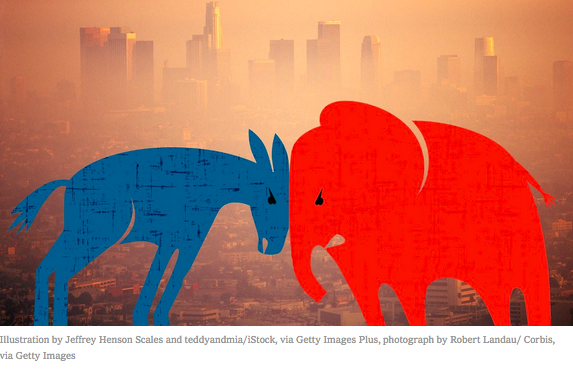It is widely believed that most Republicans are skeptical about human-caused climate change. But is this belief correct?
In 2014 and 2016, we conducted two national surveys of more than 2,000 respondents on the issue of climate change. We found that most Republicans agreed that climate change is happening, threatens humans and is caused by human activity — and that reducing carbon emissions would mitigate the problem.
To be sure, Democrats agreed more strongly than Republicans did that climate change is a concerning reality. And among climate skeptics there were more Republicans than Democrats. Nevertheless, most Republicans were in basic agreement with most Democrats and independents on this issue.
This raises a question: If Democrats and Republicans agree about climate change, why do they disagree about climate policy?
As we and our colleague Phillip Ehret argue this month in the journal Perspectives on Psychological Science, our research suggests the problem is not so much that Republicans are skeptical about climate change, but that Republicans are skeptical of Democrats — and that Democrats are skeptical of Republicans. This tribalism leads to political fights over differences between the parties that either do not exist or are vastly exaggerated.
Republican opposition to climate policy has occurred, in part, because climate policy has been a Democratic issue. As part of our research, we interviewed several retired members of Congress, both Republicans and Democrats, who stressed this point. Bob Inglis, a former Republican congressman from South Carolina, spoke of his opposition in his first several years in Congress: “All I knew was that Al Gore was for it, and therefore I was against it.”




